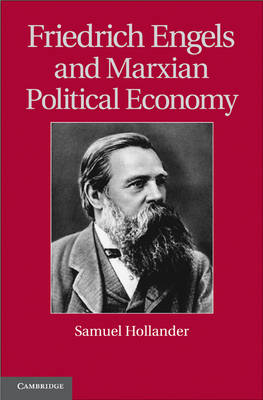Historical Perspectives on Modern Economics
2 total works
This book rejects the commonly encountered perception of Friedrich Engels as perpetuator of a 'tragic deception' of Marx, and the equally persistent body of opinion treating him as 'his master's voice'. Engels' claim to recognition is reinforced by an exceptional contribution in the 1840s to the very foundations of the Marxian enterprise, a contribution entailing not only the 'vision' but some of the building blocks in the working out of that vision. Subsequently, he proved himself to be a sophisticated interpreter of the doctrine of historical materialism and an important contributor in his own right. This volume serves as a companion to Samuel Hollander's The Economics of Karl Marx (Cambridge University Press, 2008).
Presents an account and technical assessment of Marx's economic analysis in Capital, with particular reference to the transformation and the surplus-value doctrine, the reproduction schemes, the falling real-wage and profit rates, and the trade cycle. The focus is on criticisms that Marx himself might have been expected to face in his day and age. In addition, it offers a chronological study of the evolution of that analysis from the early 1840s through three 'drafts': documents of the late 1840s, the Grundrisse of 1857–1858, and the Economic Manuscripts of 1861–1863. It also provides three studies in application, focusing on Marx's 'evolutionary' orientation in his evaluation of the transition to communism and his rejection of 'egalitarianism' under both capitalist and communist regimes; his evolving perspective on the role of the industrial 'entrepreneur'; and his evolving appreciation of the prospects for welfare reform within capitalism.

